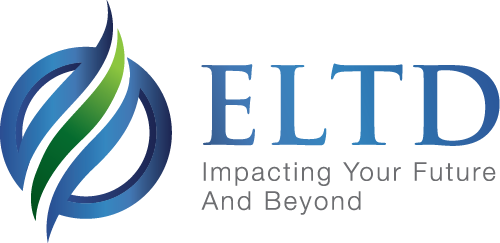Emotional intelligence is the ability to identify, understand, and regulate emotions in ourselves and others. It’s an essential skill for success in both personal and professional life. People with high emotional intelligence are better communicators, negotiators, problem solvers, and leaders. But emotional intelligence doesn’t come naturally to everyone. Fortunately, it’s a skill that can be learned and developed. In this blog post, we will dive into the five essential tips you can use to master emotional intelligence and achieve success in every aspect of your life. From recognizing your own emotions to developing empathy, we’ll cover everything you need to know to take control of your emotional intelligence and become a better version of yourself.
Understanding emotional intelligence and its importance
Emotional intelligence is a powerful skill that can greatly impact our personal and professional lives. It refers to the ability to recognize, understand, and manage our own emotions, as well as the emotions of others.

In today’s fast-paced and interconnected world, where interactions happen both face-to-face and online, emotional intelligence has become increasingly crucial. It allows us to navigate complex social dynamics, build strong relationships, and make better decisions.
Understanding emotional intelligence starts with recognizing that emotions play a significant role in our daily lives. They influence our thoughts, actions, and relationships with others. By developing emotional intelligence, we gain greater self-awareness and insight into how our emotions impact our behavior and decision-making processes.
Moreover, emotional intelligence enables us to empathize with others and understand their perspectives and feelings. This skill is particularly valuable in building meaningful connections, resolving conflicts, and leading teams effectively.
The importance of emotional intelligence extends to various areas of life. In the workplace, individuals with high emotional intelligence tend to be more successful in their careers. They are better at managing stress, adapting to change, and collaborating with others.
In personal relationships, emotional intelligence allows us to communicate more effectively, resolve conflicts constructively, and cultivate deeper connections. It also helps us regulate our own emotions, preventing impulsive reactions and fostering healthier interactions.
The five components of emotional intelligence
By mastering these five components, you can greatly improve your emotional intelligence and unlock a range of benefits in your personal and professional life.
1. Self-awareness:
The first step in developing emotional intelligence is to cultivate self-awareness. This involves recognizing and understanding your own emotions, strengths, weaknesses, values, and triggers. By gaining insight into your own emotional landscape, you can better understand how your emotions influence your behavior and decision-making processes.
2. Self-regulation:
Once you are aware of your emotions, it is important to develop the ability to regulate them effectively. This means managing your impulses, controlling disruptive emotions, and adapting your behavior to different situations. Self-regulation allows you to maintain composure even in challenging circumstances and make more thoughtful and rational decisions.
3. Motivation:
Motivation is a key driver of success, and emotional intelligence plays a significant role in cultivating internal motivation. Individuals with high emotional intelligence are often intrinsically motivated, setting meaningful goals and persevering through obstacles. They have a clear sense of purpose and are able to harness their emotions to stay focused, resilient, and determined.
4. Empathy:
Empathy is the ability to understand and share the feelings of others. It involves being able to put yourself in someone else’s shoes, listen actively, and respond compassionately. Developing empathy allows you to build stronger relationships, communicate effectively, and navigate conflicts with greater understanding and empathy.
5. Social skills:
Strong social skills are essential for successful interpersonal relationships. This component of emotional intelligence encompasses various abilities, including effective communication, conflict resolution, collaboration, and leadership. By honing your social skills, you can build rapport, inspire and influence others, and create a positive and harmonious environment.
Tip 1: Self-awareness – Recognizing and understanding your own emotions
To cultivate self-awareness, start by taking the time to reflect on your emotions and the situations that trigger them. Ask yourself questions like, “Why am I feeling this way?” or “What is causing this emotional response?” This introspection will help you gain insights into your emotional patterns and tendencies.
Additionally, pay attention to your body’s physical cues, as they often provide valuable information about your emotional state. Are you feeling tense? Are you experiencing butterflies in your stomach? These physical sensations can offer clues about underlying emotions.
Journaling can be a powerful tool for enhancing self-awareness. Write down your thoughts and feelings regularly, allowing yourself to explore and process them. This practice can help you identify recurring patterns, triggers, and areas for personal growth.
Seeking feedback from others is another effective way to develop self-awareness. Trusted friends, family members, or colleagues can provide valuable insights into your blind spots or areas where your emotions may be affecting your behavior without your awareness.
Remember, self-awareness is not about judgment or criticism; it is about understanding and accepting yourself fully. Embrace your emotions, both positive and negative, as they provide valuable information about your needs, values, and desires.
Tip 2: Self-regulation – Managing and controlling your emotions effectively
To develop self-regulation, start by becoming more aware of your emotions and their triggers. Take the time to reflect on how you typically respond in certain situations and identify any patterns or recurring emotional patterns. This self-awareness is key to understanding your emotional tendencies and how they may impact your behavior.

Once you have identified your emotional triggers, practice techniques that help you regulate your emotions in the moment. Deep breathing exercises, mindfulness meditation, and progressive muscle relaxation are effective tools to calm your mind and body during times of stress or intense emotions. These techniques can help you gain control over your emotional state and prevent impulsive reactions.
Another important aspect of self-regulation is developing the ability to delay gratification. This means resisting immediate impulses and considering the long-term consequences of your actions. It involves setting goals and prioritizing them over short-term gratification. By practicing delayed gratification, you can make more thoughtful decisions and avoid impulsive behaviors driven solely by your emotions.
Building resilience is also crucial in self-regulation. Resilience allows you to bounce back from setbacks and adversity without being consumed by negative emotions. Cultivate a positive mindset and focus on finding solutions rather than dwelling on problems. Develop a support system of friends, family, or mentors who can provide guidance and encouragement during challenging times.
Finally, practicing self-care is essential for effective self-regulation. Take care of your physical and mental well-being through exercise, proper nutrition, and adequate rest. Engage in activities that bring you joy and help you relax, such as hobbies, spending time in nature, or practicing mindfulness.
Tip 3: Empathy – Developing the ability to understand and relate to others’ emotions
To cultivate empathy, it is essential to practice active listening. This involves giving your full attention to the person speaking, without interrupting or judging. By truly listening, you can pick up on the subtle cues and emotions behind their words, allowing you to respond with empathy and understanding.
Another way to enhance your empathy is through perspective-taking. This involves imagining yourself in someone else’s situation and considering how it might feel from their point of view. This exercise helps to break down barriers and fosters a deeper understanding of others’ experiences.
Empathy also requires the ability to recognize and manage your own emotions. By being aware of your own feelings, you can better relate to and connect with others on an emotional level. It is important to practice self-reflection and understand how your emotions may influence your interactions with others.
In addition, empathy extends beyond understanding emotions. It involves taking action to support and validate others’ feelings. This can be as simple as offering a listening ear, providing comfort, or offering assistance when needed. Small acts of kindness and compassion go a long way in building trust and establishing strong relationships.
Lastly, empathy is not limited to face-to-face interactions. In today’s digital world, it is crucial to extend empathy to online communication as well. This means being mindful of how your words and actions may be perceived by others and considering the potential impact they might have.
Tip 4: Social skills – Building strong relationships and effective communication
In today’s interconnected world, the ability to connect with others and foster meaningful relationships is more important than ever.

To build strong relationships, start by actively listening to others. When engaging in conversations, give your full attention and show genuine interest in what the other person is saying. This not only helps you understand their perspective but also makes them feel valued and respected.
Effective communication is also key in building strong relationships. It involves expressing yourself clearly and assertively while being mindful of others’ feelings and opinions. Practice open and honest communication, avoiding assumptions and judgments. Be willing to have difficult conversations, addressing conflicts or issues in a respectful manner.
Non-verbal communication plays a significant role in social skills as well. Pay attention to your body language, facial expressions, and tone of voice. Maintain eye contact, use appropriate gestures, and convey warmth and empathy through your non-verbal cues.
Building rapport is another vital component of social skills. Find common interests or topics of conversation to connect with others on a deeper level. Show empathy and understanding, putting yourself in their shoes and validating their emotions and experiences.
Lastly, establishing boundaries and managing conflicts are essential for maintaining healthy relationships. Clearly communicate your boundaries and respect others’ boundaries as well. When conflicts arise, approach them with a problem-solving mindset, focusing on finding mutually beneficial solutions rather than winning or being right.
Tip 5: Motivation – Harnessing your emotions to set and achieve goals
When you are motivated, you are more likely to stay committed to your goals and persevere through challenges.
To tap into your motivation, it is essential to understand what truly inspires you. Take the time to reflect on your values, passions, and aspirations. What is it that makes you excited and energized? Identifying your intrinsic motivators will help you align your goals with your core values, making them more meaningful and compelling.
Once you have established your motivations, break down your goals into smaller, manageable steps. This allows you to create a roadmap that will guide you towards success. By setting achievable milestones, you can maintain momentum and celebrate each milestone as a mini victory, further fueling your motivation.
Another important aspect of motivation is to surround yourself with a supportive network. Seek out individuals who share similar goals or have achieved what you aspire to accomplish. Their experiences and insights can be invaluable sources of inspiration and guidance. Additionally, sharing your goals with trusted friends or mentors can help hold you accountable and provide the encouragement you need during challenging times.
It is also essential to cultivate a positive mindset. Embrace optimism and believe in your ability to overcome obstacles and achieve your goals. When faced with setbacks or failures, view them as learning opportunities rather than roadblocks. By reframing challenges in this way, you can maintain your motivation and resilience.
Lastly, regularly revisit and reassess your goals. As you progress, your motivations and priorities may evolve. Take the time to reflect on whether your goals still align with your values and aspirations. Adjustments may be necessary to ensure continued motivation and fulfillment.
Practical exercises and techniques to improve emotional intelligence
Improving emotional intelligence is a lifelong journey that requires consistent practice and dedication. Fortunately, there are several practical exercises and techniques that can help you enhance this critical skillset. By incorporating these exercises into your daily routine, you can strengthen your emotional intelligence and reap the benefits in all areas of your life.
1. Self-reflection:
Take time each day to reflect on your emotions, thoughts, and reactions. Ask yourself why you felt a certain way in a particular situation and how you could have responded differently. This self-awareness exercise allows you to understand your own emotions better and how they influence your behavior.
2. Active listening:
Practice active listening in your conversations with others. Focus on truly understanding their perspective, feelings, and needs. Avoid interrupting or formulating a response while they are speaking. By giving your full attention and demonstrating empathy, you strengthen your ability to understand and connect with others on an emotional level.
3. Mindfulness meditation:
Engaging in mindfulness meditation can significantly enhance your emotional intelligence. Set aside a few minutes each day to sit quietly, focusing on your breath and observing your thoughts and emotions without judgment. This practice cultivates self-awareness, improves emotional regulation, and helps you respond more effectively to challenging situations.
4. Emotional vocabulary expansion:
Expand your emotional vocabulary by actively seeking out and learning new words to describe different emotions. This exercise helps you become more precise in identifying and expressing your own emotions. It also aids in recognizing and empathizing with the emotions of others, fostering stronger interpersonal connections.
5. Conflict resolution exercises:
Practice resolving conflicts in a constructive and empathetic manner. Role-play different scenarios or reenact past conflicts with a trusted friend or coach. Use these opportunities to develop strategies for managing your emotions, active listening, finding common ground, and seeking win-win solutions.
Overcoming common challenges and obstacles in developing emotional intelligence
One of the most common challenges in developing emotional intelligence is managing and regulating your own emotions. It can be difficult to control strong emotions such as anger, frustration, or sadness, especially in high-pressure situations. To overcome this challenge, it is important to practice self-awareness and mindfulness. Take the time to identify and understand your emotions, and then consciously choose how to respond to them. Deep breathing exercises, meditation, and journaling can be helpful tools in managing and regulating emotions.

Another challenge is navigating conflicts and difficult conversations effectively. Emotional intelligence plays a crucial role in handling conflicts with empathy, understanding, and respect. It is important to listen actively, validate others’ perspectives, and communicate assertively while maintaining emotional balance. Developing active listening skills and practicing effective communication techniques can greatly enhance your ability to navigate conflicts and find mutually beneficial solutions.
Developing empathy can also be a challenge for some individuals. Empathy involves understanding and sharing the emotions of others, which can be challenging if you have a different perspective or limited experience with their situation. To overcome this challenge, make an effort to practice perspective-taking. Put yourself in others’ shoes and try to understand their feelings and experiences. Engage in active listening and ask open-ended questions to gain a deeper understanding of their perspective.
Another obstacle to emotional intelligence development is managing stress and building resilience. Stress can impact your emotional well-being and hinder your ability to regulate emotions effectively. It is essential to prioritize self-care, practice stress-management techniques such as exercise, mindfulness, and proper rest. Building resilience involves developing coping mechanisms and maintaining a positive mindset in the face of adversity. Seek support from friends, family, or professionals if needed, and remember to be kind to yourself during challenging times.
Lastly, overcoming the challenge of self-reflection and self-improvement is crucial in developing emotional intelligence. It can be uncomfortable to reflect on your own emotions, behaviors, and patterns, but it is necessary for growth. Embrace self-reflection as an opportunity for personal development and commit to continuous learning. Set aside dedicated time for self-reflection, journaling, or seeking feedback from trusted individuals. Embrace constructive criticism and use it as a catalyst for positive change.
The impact of emotional intelligence on personal and professional success
In the realm of personal success, emotional intelligence allows us to navigate through life’s challenges with resilience and grace. It enables us to effectively manage stress, make sound decisions, and maintain healthy relationships. By being aware of our own emotions and their impact on our behaviors, we can respond to situations in a more constructive and positive manner.
In the professional arena, emotional intelligence is a key differentiator for success. It influences our ability to communicate effectively, build strong relationships, and lead others. Leaders with high emotional intelligence are able to inspire and motivate their teams, resolve conflicts, and adapt to changing circumstances with ease. They possess the ability to understand the needs and perspectives of their colleagues, and can foster a collaborative and inclusive work environment.
Moreover, emotional intelligence enhances our social skills, enabling us to forge meaningful connections and establish trust with others. It allows us to communicate our thoughts and feelings with clarity, while also actively listening to others and understanding their perspectives. This leads to stronger interpersonal relationships, increased teamwork, and improved overall communication within organizations.
Conclusion
Emotional intelligence plays a crucial role in both personal and professional success, and by implementing the five essential tips we provided, you can greatly enhance your emotional intelligence skills. Remember, it takes time and practice to master emotional intelligence, but the benefits are immeasurable. As you continue on your journey of self-improvement, we wish you all the best in cultivating your emotional intelligence and achieving success in all aspects of your life.


